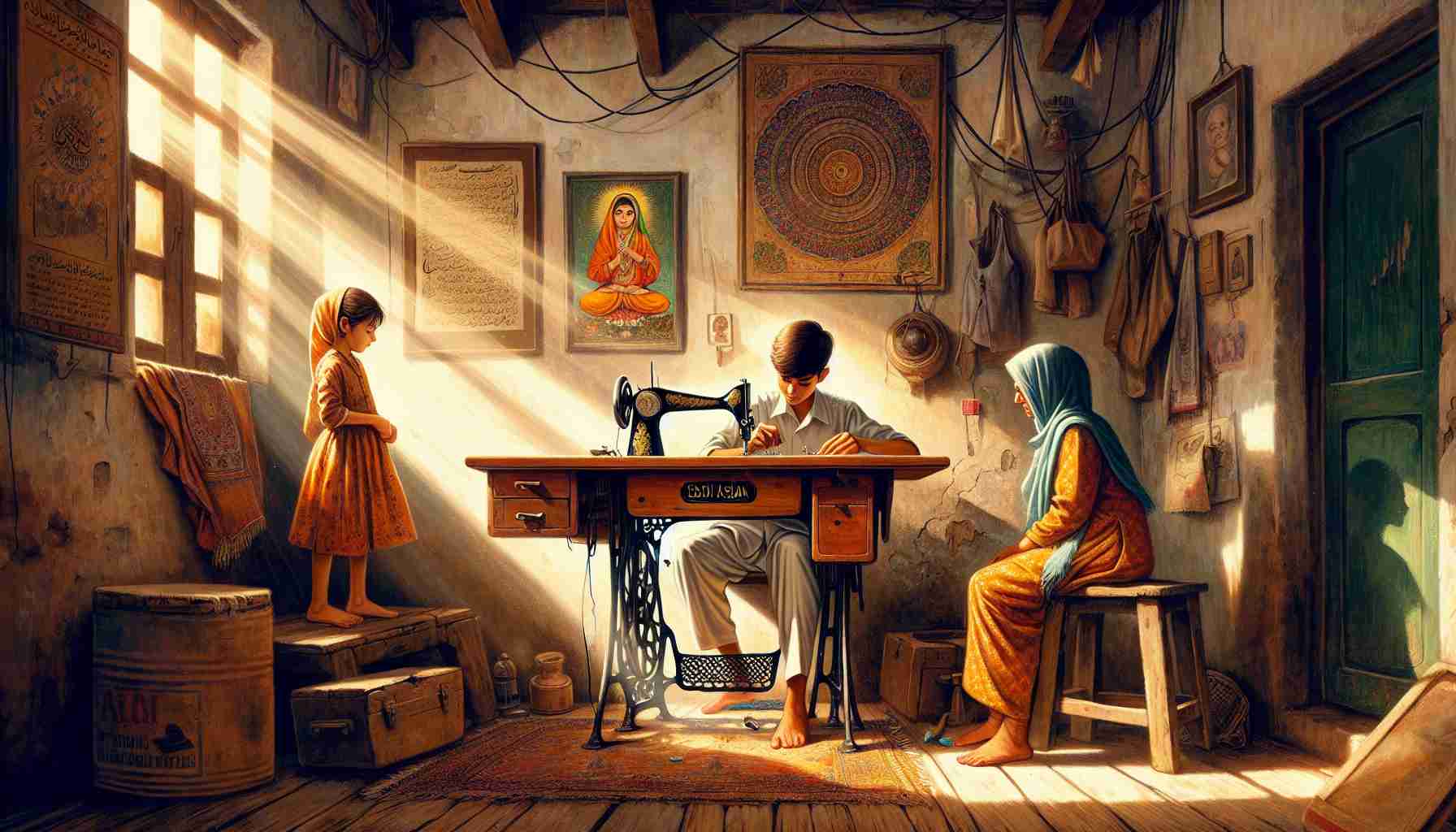

I was twenty-five when I inherited my father's small tailoring shop—just three stools, a rusty fan, and one sewing machine that huffed louder than it worked. My name is Arjun, and that year, I swore I would grow our humble place into something worthy of his memory.
For three years, I stitched clothes from morning until the moon rose—wedding blouses, school uniforms, even broken zippers nobody else would touch. Still, builders came and bought out tailors across the street. Their shops became iced coffee cafés and glitzy decor stores. Mine stayed the same.
That's when the doubt started. Had all my work meant anything? Some nights I stared at the shop’s shutter and thought of walking away.
One sultry August afternoon, a woman walked in holding her daughter's hand. The girl looked about seven, hair braided tight. Her uniform was torn at the hem, held together with safety pins.
“Everyone turned us away,” the mother said. “Can you fix this?”
It was almost lunchtime, and I hadn’t eaten. My hands ached. But I saw the girl’s eyes—hopeful, waiting.
I nodded. “Come back in twenty minutes.”
They returned, and I handed the stitched dress to the girl with a smile. The mother pressed something into my hand—a paper bag with two hot samosas. “You reminded me kind people still exist,” she whispered.
That evening, sitting on my shop’s step with samosas in hand, a verse floated into my mind, uninvited:
Karmaṇy-evādhikāras te mā phaleṣhu kadāchana
“You have a right to your actions, but not to the fruits."
—Bhagavad Gita 2.47
I had heard it so many times growing up. My mother would quote it while folding laundry, especially during hard months. But now, with the samosa warmth in my palm, I felt it.
My work mattered, even if the world didn’t cheer for it. Even if success didn’t bloom as fast as I wanted. Like seeds under soil—hidden, quiet, still alive.
Weeks later, the little girl’s teacher came asking for uniforms. Then her cousin came. The cousin’s uncle. Orders grew, slow but steady, like water trickling into a dry well.
In the Mahabharata, Queen Kunti once prayed not for ease, but for endurance. I used to think that was foolish. Now I understand. Patience—ṣama—isn’t weakness. It’s strength disguised.
The Taittiriya Upanishad says, Satyam vada, dharmam chara—“Speak truth, walk the path of dharma.” I’d been doing that all along. Perhaps that was enough.
Even now, years later, when business dips and my hands tire, I think of that girl’s hem. That first stitched edge which no one else believed was worth saving. That’s when I remember: karma ripens unseen. But it ripens.
And so, I keep sewing.
I was twenty-five when I inherited my father's small tailoring shop—just three stools, a rusty fan, and one sewing machine that huffed louder than it worked. My name is Arjun, and that year, I swore I would grow our humble place into something worthy of his memory.
For three years, I stitched clothes from morning until the moon rose—wedding blouses, school uniforms, even broken zippers nobody else would touch. Still, builders came and bought out tailors across the street. Their shops became iced coffee cafés and glitzy decor stores. Mine stayed the same.
That's when the doubt started. Had all my work meant anything? Some nights I stared at the shop’s shutter and thought of walking away.
One sultry August afternoon, a woman walked in holding her daughter's hand. The girl looked about seven, hair braided tight. Her uniform was torn at the hem, held together with safety pins.
“Everyone turned us away,” the mother said. “Can you fix this?”
It was almost lunchtime, and I hadn’t eaten. My hands ached. But I saw the girl’s eyes—hopeful, waiting.
I nodded. “Come back in twenty minutes.”
They returned, and I handed the stitched dress to the girl with a smile. The mother pressed something into my hand—a paper bag with two hot samosas. “You reminded me kind people still exist,” she whispered.
That evening, sitting on my shop’s step with samosas in hand, a verse floated into my mind, uninvited:
Karmaṇy-evādhikāras te mā phaleṣhu kadāchana
“You have a right to your actions, but not to the fruits."
—Bhagavad Gita 2.47
I had heard it so many times growing up. My mother would quote it while folding laundry, especially during hard months. But now, with the samosa warmth in my palm, I felt it.
My work mattered, even if the world didn’t cheer for it. Even if success didn’t bloom as fast as I wanted. Like seeds under soil—hidden, quiet, still alive.
Weeks later, the little girl’s teacher came asking for uniforms. Then her cousin came. The cousin’s uncle. Orders grew, slow but steady, like water trickling into a dry well.
In the Mahabharata, Queen Kunti once prayed not for ease, but for endurance. I used to think that was foolish. Now I understand. Patience—ṣama—isn’t weakness. It’s strength disguised.
The Taittiriya Upanishad says, Satyam vada, dharmam chara—“Speak truth, walk the path of dharma.” I’d been doing that all along. Perhaps that was enough.
Even now, years later, when business dips and my hands tire, I think of that girl’s hem. That first stitched edge which no one else believed was worth saving. That’s when I remember: karma ripens unseen. But it ripens.
And so, I keep sewing.